Full support for further education
1.Counseling on further education
The first thing we do when a student enrolls in our program is to investigate where to further go to school. We will ask each student in detail about where he or she wishes to go on to higher education. Upon the interview, we will decide and provide guidance on whether to enter a liberal arts or science course, and what is the best education for them, graduate school, university, vocational school, etc.
Homeroom teachers and academic advisors will meet with students throughout the school year to ensure that they are able to enter a school that best suits their needs. The Academic Advising Department is aware of historical data and up-to-date information, and research on such as whether TOEFL and TOEIC scores are required, what score is required for JLPT and EJU, depending on which school they go, and provide students with information on higher education. We provide interview and essay coaching, based on the latest trends, as well as research proposal writing for students who wish to enter graduate school. We also provide mock exams and interviews from previous years.
Some of our education team includes teachers who have completed the University of Tokyo's doctoral program, as well as those who are currently in the doctoral program, so, we can also accept students who aim graduate schools.

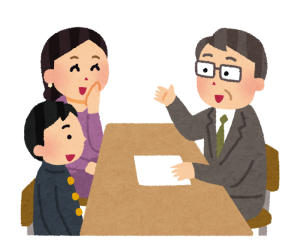
2.Original teaching materials developed by our school
Our school has developed our own textbooks and resumes for students, who wish to continue their education.
“Elementary Japanese Vocabulary (with Chinese translation)”, “Elementary and Intermediate Japanese Vocabulary (with Chinese translation)”, “Intermediate Japanese Vocabulary (with Chinese translation)”
“JLPT Grammar N1 (with Chinese translation)”, “JLPT Grammar N2 (with Chinese translation)”, “JLPT Grammar N3 (with Chinese translation)”, “JLPT Grammar N4, N5 (with Chinese translation)”
“Reading for EJU Japanese Language Strategies”, “Essay Strategies for Passing Entrance Exams”, “How to Write a Reason for Intentional Application Form that Makes a Difference”
“Liberal Arts: General Studies: Economics”,” Liberal Arts: General Studies: History”, “Liberal Arts: General Studies: Geography”, “Liberal Arts: General Studies: Society,” “Liberal Arts: General Studies: Important Terms”
3.College Guidance
Eligibility: Those who have completed 12 years of schooling in a foreign country and those who wish to enter a Japanese university.
In addition to studying the basic Japanese language, students will also study items necessary for the university entrance examination.
(1) Liberal Arts: Math I, Liberal Arts General Studies, and Essay
(2) Science: Math II, Science Subjects, Essays
(3) TOFEL and TOEIC lessons
(4) Guidance on college campus exams and interviews
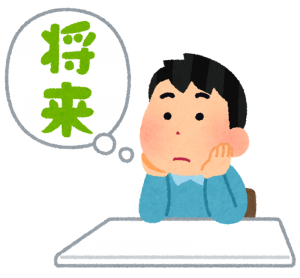
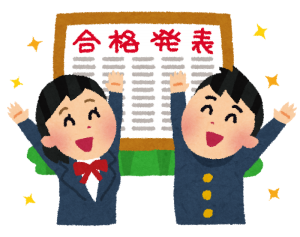
4.Graduate School Guidance
arget students: Those who have graduated from a university abroad or those who wish to enter a Japanese graduate school.
In addition to the basic Japanese language course, this course covers the necessary items for the graduate school entrance examination.
(1) TOFEL and TOEIC lessons
(2) Training to develop the ability to read papers
(3) "How to write an essay for a graduate school entrance examination" and guidance on writing a research plan by the academic advisor
(4)Graduate School Entrance Examination Information Session
(5) Graduate School Interview Guidance

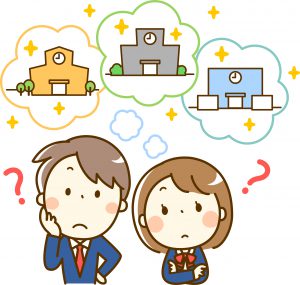
5.Art College Preparatory Course
Eligibility: (1) Those who have completed more than 12 years of schooling in a foreign country and those who wish to enter a Japanese university. (2) Those who have graduated from a university abroad or wish to enter a graduate school in Japan.
(1) Starting from the basic course, Japanese language support is available for the beginner class students, so students can study without worries.
(2) Expertise knowledge in drawing, coloring etc. will be taught by a specialist teacher in each.
(3) Specialized course for essays and essays of reasons for application is available, and after taking the course, students can reach the level of passing the exam by correcting the homework.
(4 )Students will be able to communicate with their professors through mock interviews.
(5) Special lectures on design, sketching, portfolio, etc., and information sessions of various art colleges are positively implemented.


6.Vocational School Guidance
There are about 2,800 vocational schools in Japan and 347 in Tokyo. About 270,000 students are enrolled in vocational schools every year. For international students, who wish to enter a vocational school where they can learn specialized knowledge, our school has a full support system. It is also advantageous to find a job in Japan after learning professional skills. We can introduce students to professional schools according to their requirements and wishes. In addition, we have tie-up with more than 50 vocational schools across the country, and we can recommend students to enter these schools.
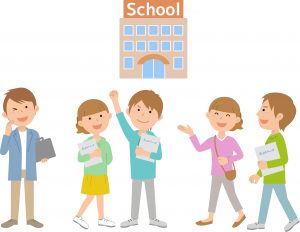

7.Special Lectures for Examinations
Special exam preparation courses are held periodically.
(1) “How to Write a Reason for Intentional Application Form that Makes a Difference”
(2) “Essay Course for Passing University Entrance Examinations (with Corrections)”
(3) “How to Write an Essay for Graduate School Entrance Examinations (with corrections)”
(4) "Interview Manual for Success”


8.Prestigious Universities Campus Tour
The best way to get to know a university is to see the school in person. We offer campus tours to experience the atmosphere of the university.



9.Conversation Salon
Regular conversation salon led by Prof. Ami. Each session has a different theme, and we discuss with Japanese university students, graduate students and adults about their home country's culture, university life, company information that they work for. In addition, we make Japanese sweets and Chinese gyoza, etc., while interacting with each other. In other words, it can be a place for communication, discussion and presentation. For international students, it is useful for conversation practice, understanding of Japanese culture, and gathering information about higher education and employment.

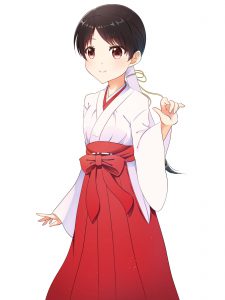



他人と差をつける志望理由書の必要条件:
1.志望理由を具体的に書くこと、目的は読み手に共感を覚えさせること。
2.大学で学びたいことと自分がその学ぶに適した能力と適性を持ち合わせていること。
3.入学目的が、その志望大学・学部でなければいけないという明確な理由。
4.入学後も、生涯にわたって学びたいという意欲。
入学願書と志望理由書の作成手順:
1.願書をできるだけ早く入手する。
2.TMJ志望理由書作成講座を受講する。
3.ワークシート作成と下書き。
4.進学指導担当者に添削してもらう。
5.清書して提出する。
東京都市日本語学校では進学指導先生による志望理由書作成講座を用意しております。進学希望者は是非ご利用ください。
面接試験対策:
1.身だしなみを忘れずに!服装や身だしなみの印象で減点されてしまう。
2.入退室は繰り返し練習する。
3.よく聞かれる問題を自分なりの回答を事前に用意する。
4.日頃の言葉遣いを指導する。
5.ゆっくり、きちんと話す練習をする。
6.志望理由書に沿った回答を練習する。
東京都市日本語学校では進学指導先生による大学受験面接模擬講座を用意しております。進学希望者は是非ご利用ください。
受かる小論文講座:
東京都市日本語学校は進学希望者に「小論文基本講座」を用意しております。本講座は東京大学博士、千葉大学博士課程の教師が担当します。合計12の講座を受講後、全員が合格できる小論文を書けるようになるのが目標です。是非ご参加ください。
1.小論文の基本、減点ルールを知る。
2.自分の立場を決め、論点について賛成か否定かをはっきりさせる。
3.書き言葉を使用する。話し言葉は幼稚と思われるため。
4.時間配分はあらかじめ決めておく。
5.一度決めた結論は途中で変えてはいけない。
6.段落は論理が区切れるところで分ける。
7.困った課題文の対処法を覚える。
8.制限字数に足りない時、字数を増やすテクニックを身につける。
9.過去問の模範解答を勉強する。
10.添削を受けて自分の弱点を知る。
11.模擬テーマ練習(1)、(2)
12.模擬テーマ練習(3)、(4)
進学に役立つ情報:
日本国内には768ぐらいの大学があり、その中に私立大が約8 割です。国立大と公立大はほぼ同じ割合で、それぞれ約1 割に過ぎません。圧倒的に私立大の数が多いのです。2018年のデータによると国立大は82校 、公立大は90校 、私立大は589 校です。
文系学部の中にもっとも多いのは「経営学・経営情報学・商学・会計学」分野で、次いで学べる学科数が多いのは「社会学・観光学・メディア学」分野です。2018 年4 月時点で全国にあるすべての学科を旺文社分類の71 の学問分野に分類し、多いほうから並べたのが下の通りです。
理系では、いまや生活に欠かせないコンピュータ、ネットワークに関連するさまざまな技術を学ぶ「情報工学」分野、そして、資格取得率が高く、将来に直結する医療系のなかから、「医療・保健学」分野と「看護学」分野が上位に入りました。
日本の大学入学から卒業までの入学金及び授業料の合計
| 国立大学 | 私立大学 | |
|---|---|---|
| 文系 | 約2,420,000円 | 約3,960,000円 |
| 理系 | 約2,420,000円 | 約5,400,000円 |
| 医学部 | 3,490,000円 | 23,370,000円 |
入学費用、施設設備費に違いがあり、私立は国立より高くなる傾向にあります。
